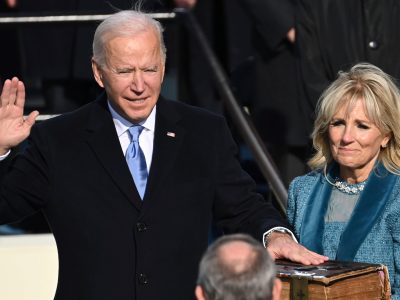The Trump Administration Is On An Environmental Losing Streak
Courts Continue to Strike Down Anti-Environmental Actions
 While the Trump Administration’s assault on the environment is alarming, courts are continuing to hand the administration an impressive string of losses that mean that, at least in the short term, the assault is much less effective than the administration’s claims of deregulating the economy would lead us all to believe. In just the last 8 days, the Administration has lost four high profile environmental cases, adding to a string of losses over the past 18 months. The most recent losses include the following:
While the Trump Administration’s assault on the environment is alarming, courts are continuing to hand the administration an impressive string of losses that mean that, at least in the short term, the assault is much less effective than the administration’s claims of deregulating the economy would lead us all to believe. In just the last 8 days, the Administration has lost four high profile environmental cases, adding to a string of losses over the past 18 months. The most recent losses include the following:
Indigenous Environmental Network v. U.S. Department of State:
In this case involving the route of the Keystone Pipeline, a U.S. District Court in Montana ruled that the federal government improperly refused to conduct additional environmental review of the project, as required by the National Environmental Policy Act (NEPA) after the route of the pipeline was changed. UCLA Law graduate Jackie Prange of the Natural Resources Defense Council is serving as one of the lead attorneys on the case.
League of United Latin American Citizens v. Wheeler
The Ninth Circuit struck down an EPA rule that would have continued to allow residues of the pesticide chlorpyrifos to remain on food. EPA had found that exposure to chlorpyrifos likely causes low birth weight and delays in infant mental development, yet denied a petition to ban any residue of the pesticide. The court held that there was “no justification” for the 2017 rule allowing pesticide residue (called “tolerances”). Dan blogged about the case more extensively here.
South Carolina Coastal Conservation League v. Pruitt
This case involves ongoing controversy about the Waters of the United States Rule, which governs the jurisdiction of the United States over wetlands and bodies of water connected to wetlands (see Sean’s excellent post from yesterday here for more analysis). In 2015 the Obama Administration issued the so-called WOTUS rule. After a series of complicated jurisdictional battles culminating in a U.S. Supreme Court case that held that district courts have jurisdiction over wetlands cases, the Trump Administration suspended the WOTUS rule until 2020. This week, a federal district court in Charleston, South Carolina struck down the Trump Administration’s attempt to suspend the WOTUS rule on the grounds that EPA had failed to follow proper administrative procedures under the Administrative Procedure Act, including failing to provide proper opportunities for notice and comment and failing to consider the substantive implications of suspending the rule. The injunction affects about half the country, those 26 states in which the original WOTUS rule has not been suspended.
At issue in this case was an EPA decision that the agency would suspend for 20 months a set of Obama Administration rules that heightened safety and review procedures for chemical plants — the strengthening of the rules was in reaction to the West Texas chemical explosion at a fertilizer plant that killed 15 people and injured 160 and a chemical explosion at a chemical plant in Geismar, Louisiana that killed 2 and injured almost 80. The regulations are designed to improve emergency response, require more rigorous safety training and audits, and provide more information disclosure to worker and to affected communities. EPA suspended the implementation of the rules in order to reconsider them. The D.C. Circuit Court of Appeals found that the 20 month suspension violated an express provision of the Clean Air Act. The court also found that the plaintiffs had standing to sue. Interestingly, Judge Brett Kavanagh participated in oral arguments for the case but did not participate in the written decision.
The Administration had previously lost other high profile cases. These include Environmental Defense Fund v. EPA, where EPA had issued a notice that it would not enforce the so-called “glider rule” for trucks, which Administrator Wheeler has now withdrawn; California v U.S. Bureau of Land Management , which enjoined the Department of Interior’s suspension of a rule to control waste from natural gas operations on federal and Indian lands; NRDC v. EPA, which vacated the Administration’s attempt to delay increases in penalties for failure to comply with fuel efficiency and GHG standards, and Clean Air Council v. Pruitt, which prohibited the Administration from suspending a rule regulating methane emissions from new oil and gas facilities.
To some degree, the mounting losses for the Trump Administration involve its failure to follow proper administrative process. But many of the cases cast doubt not just on the procedure but also the substance of the underlying actions: for example, the government lost the pesticides case this week because it had no justification for allowing pesticide residue to remain on food. In the California v. BLM case involving natural gas operations on federal and Indian lands, the court found not only that the BLM failed to follow proper procedures but also that, “the Suspension Rule is untethered to evidence contradicting the reasons for implementing the Waste Prevention Rule, and so plaintiffs are likely to prevail on the merits. They have shown irreparable injury caused by the waste of publicly owned natural gas, increased air pollution and associated health impacts, and exacerbated climate impacts.” In the NRDC v. EPA case involving increased penalties for failure to comply with auto standards, the court found that EPA lacked the authority to delay the penalties, not just that it failed to follow proper process. And in the Air Alliance v Houston case involving regulations for chemical plants, the court recounted in extensive detail — and seemingly approvingly — why updated regulations were necessary to protect workers and surrounding communities from potential chemical disasters.
It will be interesting to see if the new EPA Administrator, Andrew Wheeler, will not only be more careful with process but also with substance. The upcoming battle over whether to freeze the 2021-2025 auto standards at 2020 levels and to revoke California’s waiver will be a perfect test case. We know that EPA staff have raised serious doubts and concerns over the Department of Transportation’s attempts to play fast and loose with the facts underlying the proposal, in particular undermining DOT’s claims that suspending the standards will improve consumer safety. If Wheeler goes ahead and adopts the proposal, he risks facing the kind of legal losses his predecessor endured.







Reader Comments